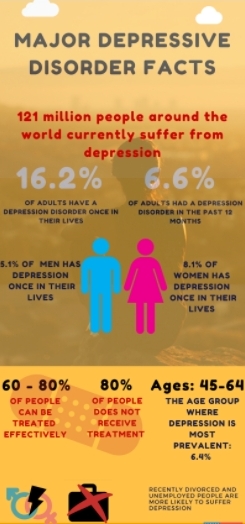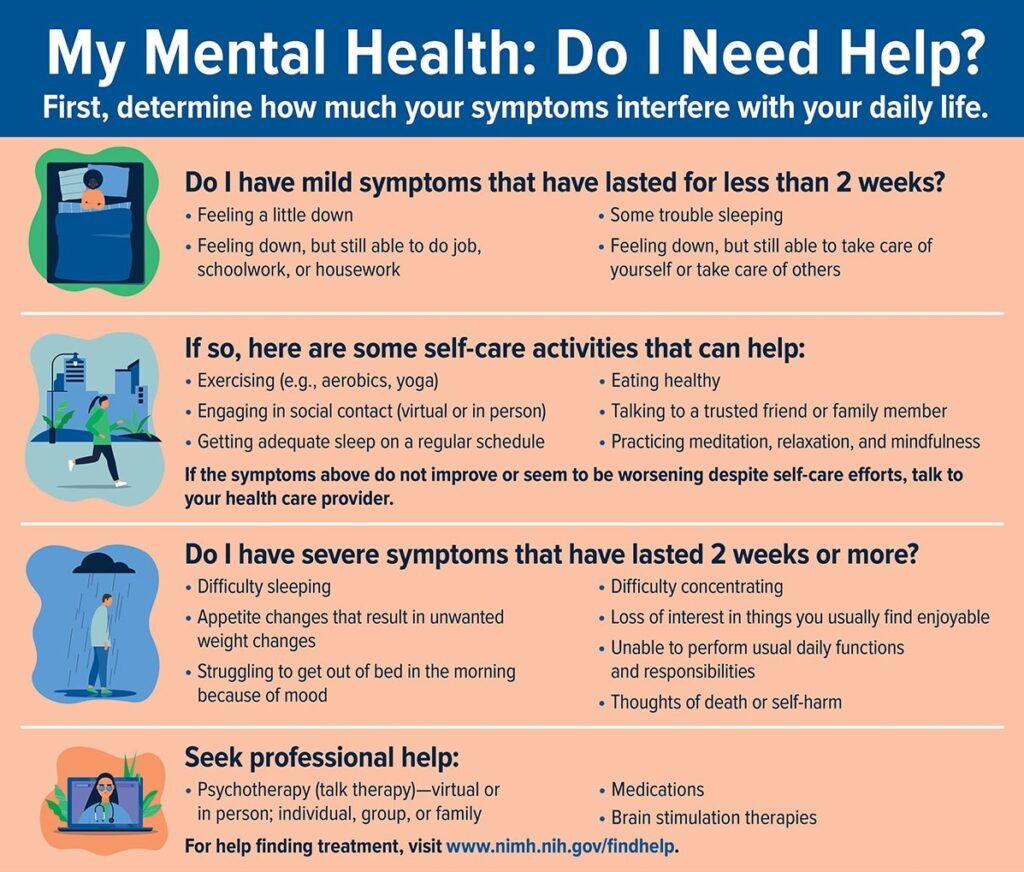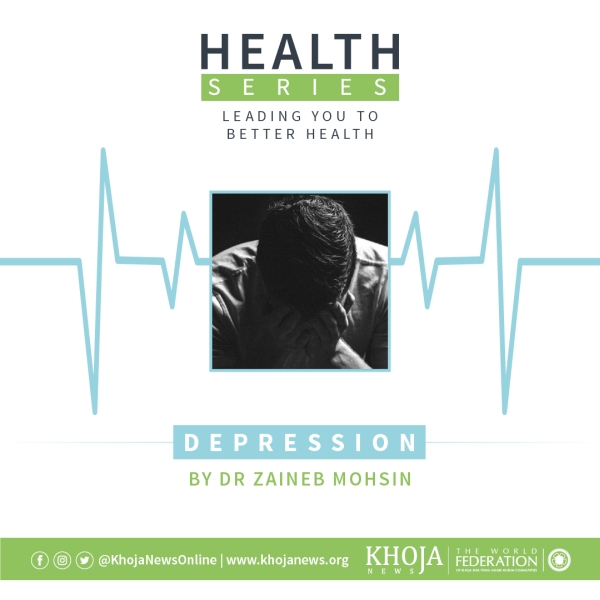WHAT IS DEPRESSION?

Depression is an illness resulting in low mood that lasts for weeks, and affects your everyday life. In its mildest form, depression can mean feeling low. This makes everything in your life harder to do and seem less worthwhile. At its most severe, depression can be life-threatening because it can make you feel suicidal.


WHEN DOES LOW MOOD BECOME DEPRESSION?
We all have times when our mood is low, and we are feeling sad about life. This is usually transient.
But if the feelings are interfering with your life and do not go away after a couple of weeks, or if they come back over and over again, it could be a sign that you’re experiencing depression.
ARE THERE DIFFERENT TYPES OF DEPRESSION?
If you are given a diagnosis of depression, you might be told that you have mild, moderate or severe depression, depending on the impact your symptoms are having on your everyday life.
WHAT ARE THE SYMPTOMS OF DEPRESSION?
There are many signs and symptoms of depression, but everyone’s experience will vary. They are explained in the figure below and can be experienced as mental or physical symptoms.
These kinds of experiences can feel very real to you at the time. They can also be quite frightening or upsetting, so it is important to seek treatment and support.

WHY DOES DEPRESSION HAPPEN?
Depression is not a sign of weakness. It can happen to the most determined of people. There will sometimes be a clear reason for becoming depressed, sometimes not. It can be a disappointment, a frustration, or because you have lost something or someone important to you.
It can vary a lot between different people, and a combination of different factors may cause their depression such as childhood experiences, life events, genetics and physical health problems. COVID-19 has led to even more susceptible people developing depression due to the socio-economic impact it has had.

WHAT CAN I DO TO HELP MYSELF WITH DEPRESSION?
Experiencing depression can be very difficult, but there are steps you can take that might help. Some people find these ideas useful, but remember that different things work for different people at different times. Only try what you feel comfortable with, and try not to put too much pressure on yourself.

Talk to someone you trust
If you’ve had a major upset in your life, it can help to tell someone close to you how you feel about it. If you do not feel you can talk to anyone, try writing down how you feel.
Try peer support
Group meetings brings together people who have had similar experiences to support each other. Many people find it helps them to share ideas about how to stay well and feel less alone.

Look after yourself
Experiencing depression can make it hard to find the energy to look after yourself. But small things, like taking a shower and getting fully dressed, whether or not you plan to go out, can make a big difference to how you feel.
Try to keep active
Volunteering, or just offering to help someone out, can make you feel better about yourself and less alone. If you are able to, get outside for some exercise, even if it’s only for a short walk.
Spend time in nature
Spending time outdoors in nature has been found to help with mental health problems like depression.
Keep a mood diary
Keeping a mood diary can help you keep track of any changes in your mood, and you might find that you have more good days than you think and if any activities, places or people make you feel better or worse. There are many freely available, including diaries from MoodPanda.
Eat properly:
You may eat too much food and put on weight or too little food and run low on vitamins when you are depressed. Try to eat regularly. A balanced diet, with lots of fruit and vegetables, can help keep your body and mind healthy.
Create a sleep routine:
Try to go to bed at the same time each night and get up at the same time each morning. Do something restful that you enjoy before going to bed, like reading a book.
Take a break:
It can be really helpful to get away and out of your normal routine for a few days.
Try relaxing activities:
If you feel stressed all the time, try relaxation exercises, yoga, massage, or another activity you find relaxing.
Do something you enjoy:
Take some regular time to do something you really enjoy – like playing a game, reading, or another hobby.
Read about depression:
There are many books and websites about depression. They can help you to understand what is going on, give you strategies to cope better, and can also help friends and relatives to understand what you are going through.
Practice self-kindness:
You may be a perfectionist who drives yourself too hard. Try to set yourself more realistic goals or expectations. Be kinder to yourself.
Keep hopeful: Remind yourself that many other people have had depression and have got better – there is help out there and you are entitled to the help you need to feel better.

WHAT HELP CAN I GET FOR DEPRESSION?
The good news is that most people with mild depression will get better on their own by doing things to help themselves. But some people need extra help, especially if their depression is moderate or severe or it goes on for a long time, or the things they have tried to get better have not worked.
Consult your physician for further advice. He will also give you a proper physical check-up to make sure there is no underlying physical illness.
There are various treatments available but you must remember that you have a right to be involved in your treatment. The best treatment will depend on your current level of depression, how long it has lasted, and whether you have had depression in the past.

Authored by:
Dr Zaineb Mohsin
MBBch, MSc in Critical care (UK), MRCP(UK)
Qualified as a physician, trained in Endocrinology and Diabetes from Imperial NHS Trust and currently working as a research fellow in Metabolic bone disease at Oxford University














